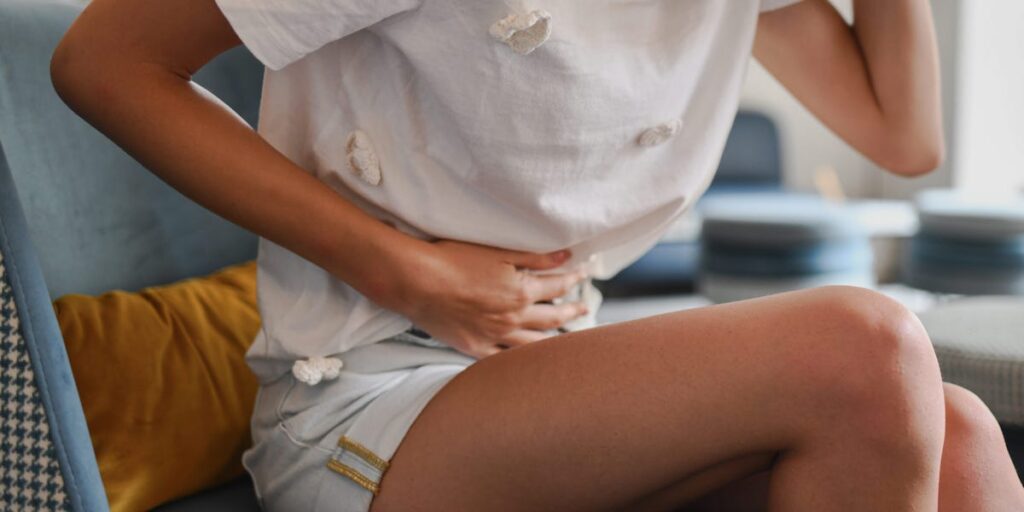From his years working as a gastroenterologist, Dr. Brennan Spiegel felt like there was a missing piece in the causes of IBS.
In 2022, he published a paper in the American Journal of Gastroenterology, hypothesizing that poor posture could lead to digestive issues by compressing the body, putting pressure on internal organs. He noted that IBS patients who improved their posture via exercises like strength training and yoga started to feel better.
Spiegel said hundreds of patients reached out to him, sharing similar stories of how strengthening their abs and back reduced their symptoms.
The experience eventually inspired Spiegel to research the connection between posture and gastrointestinal issues, culminating in his new book, “Pull: How Gravity Shapes Your Body, Steadies the Mind, and Guides Our Health.”
Spiegel said gravity, the force constantly pushing down on us and rolling our shoulders forward, is the key to why so many people feel gassy and uncomfortable.
“A fish is designed to survive and thrive through water,” Spiegel, the director of Health Services Research at Cedars-Sinai in Los Angeles, told Business Insider. “We’re like that to gravity. We just don’t really think of it very often.”
While he said symptoms like bloating aren’t solely caused by poor posture, changing how we carry our bodies can have a tremendous impact on our digestive health.
Slouching changes how you digest food
Spiegel used a simple metaphor to explain the posture-digestion connection: think of your belly as a sack of potatoes.
“Some of us are better at carrying that sack than others, and it’s heavy,” he said. We have built-in suspension systems to hold up that bag, like our diaphragm and our back muscles. But when we’re slouched, everything compresses. The sack of potatoes collapses into itself, instead of staying upright, which directly impacts the intestinal tract.
“We need our gut to be upright and open for it to be moving well and digesting well,” he said.
The ideal position for digestion is one where the body is straight, open, and vertical. “Not that you need to be in a military pose all day,” Spiegel said, but “the taller you are in terms of your stature, the better it is for gut health.”
Dead hangs and after-dinner walks help
If you need to stretch out from your desk job, Spiegel recommended a simple daily movement: the dead hang.
All it takes is gripping a pull-up bar shoulder-width apart for as long as you can. Doing it for 30 seconds to a minute is “literally defying gravity, stretching your spine out, restoring the length of your body,” he said. As a bonus, grip strength is also associated with greater longevity, as it’s linked to a stronger upper body and core.
He also recommended walking after meals. While the practice is known for efficiently burning calories, he said it’s also great for posture and opening up the belly for better digestion. He compared the intestines to a garden hose: when a hose is hanging off a wall instead of remaining bunched up on the ground, the water shoots out much straighter.
A few accessories can help
Spiegel said a few accessories can help with posture. A standing desk, he said, can help reduce how much time we sit.
Personally, he’s a big fan of weighted vests. “There’s more pull on your body, which at first can be challenging,” he said. “But if you work up to it with graded increases in the weight, you stand up stronger.” He also uses a balance board and wears ankle weights to build up his core strength.
“I really overdo it,” he said. However, he said, anything you can do to keep building up your postural strength is important for your health.
“When I explain it to my patients in this way, a light bulb goes off,” he said. “I want to stay up and stand up as long as I can and as well as I can, until gravity eventually brings me back down.”
Read the full article here
















